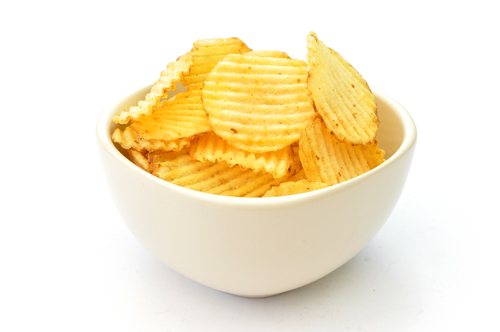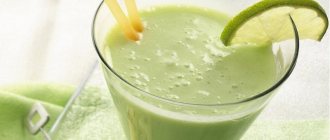Welcome, dear readers, to our website!
Here you can find out many interesting and incendiary stories, many facts and explanations about the world. On our website you will find a lot of useful and interesting information from various fields of science, sports, nature, animals and much more. Read and share with friends!
In this article we will find out why you can’t eat at night.
In our turbulent age of advanced technologies and the crazy pace of life, we are all in such a hurry, running, rushing, flying that we have almost forgotten what it means to sit down and eat in peace. Sacrificing breakfast for an extra 10-15 minutes of sleep or lunch because you’re stuck at work has become the order of the day. We subsist on dry sandwiches or have lunch hastily, on the go (often overeating or eating food that is not at all healthy for us).
In the evening, having returned from work, exhausted from the whole day, we are ready to “swallow an elephant” and sweep away everything from the refrigerator or from the stove, confident that we are replenishing the calories spent during the day. Tired and exhausted from a hearty dinner, we will sit for a while in front of the TV (or computer) and go to bed, so that tomorrow morning everything will happen all over again. Stop! But didn’t caring mothers and grandmothers tell you that eating at night is harmful?
We're not talking about those who eat dinner at night because of their work schedule. We are now talking about the majority of those who go to work every day on weekdays (from 8 to 17 or from 9 to 18 - there is no difference) and, having returned home, spend the rest of the evening at the kitchen table, or even with a plate in front of the TV screen .
An excursion into biology: what happens after eating at night?
We all studied at school and from the course of general biology and anatomy we know that any living organism is subject to an alternation of phases - wakefulness and rest. According to the biological clock, we humans are awake during the day and sleep at night, restoring our vitality. Almost all of our organs sleep with us.
But what happens when we have dinner (and sometimes lunch and breakfast at the same time during the whole hectic day) shortly before bed?

The organs responsible for digesting food cannot work at full capacity at night: the substances necessary for moving and processing food are simply not produced. Therefore, no matter how hard our body tries to force the digestive organs to “get down to business,” food eaten at night is doomed to lie passively in the area of the stomach and duodenum until the morning.
At this time, a full stomach “props” the diaphragm. That, in turn, puts pressure on the cardiac aorta, which leads to failure. Due to improper functioning of the aorta, blood circulation in the abdominal cavity and legs is disrupted, and this depletes their saturation with oxygen and nutrients.
The brain will not receive its dose of oxygen either, since at this time the mechanism of blood flow to the stomach begins to operate. Hence the feeling of drowsiness and lethargy in the morning.
During the night, food eaten but not processed, naturally, is no longer “the first freshness” - under the influence of the released gastric juice and a certain amount of bile, it became fermented. And all this mass begins to be digested, processed, delivering “something” into the blood instead of vitamins (and then we are surprised by the lack of appetite in the morning and heaviness in the stomach, bad breath and stale complexion).

Another problem that arises with late dinner is gaining excess weight. Where does it come from? Again, this is biology.
The carbohydrates we consume in food are processed by the liver into energy, which our muscles and all organs need for normal functioning. But at night we spend significantly less energy than during the day. Therefore, unspent glucose is processed by the liver into “reserves”, transforming into fat, which then settles not only on the hips and abdomen (up to 70%), but also on other parts of the body and internal organs.
Due to metabolic disorders, gallstones and salt deposits can form, which will entail many unpleasant moments and sensations.
But it should be the other way around: during sleep, the body relaxes, and the work of organs is carried out due to the breakdown of the internal reserves of the body (fat tissue), and at the same time, according to the theory of the “large biological clock,” muscle mass grows, melatonin is produced (providing us with good health). sleep), and the body as a whole rejuvenates.
Baking and sweets
I hope you are not in the habit of keeping a stock of cookies, cakes, muffins and puff pastries at home. Because if you do this, then you are more likely to eat them at night. You come home from work tired and irritable, and you can't help yourself - you just need to eat something sweet to at least slightly lift your mood and energy level. However, in reality, if you are really tired, you need something else. Sleep well, immediately. So, unless you want to gain a few pounds a week and wake up in the middle of the night with low blood sugar, forget about sweets and baked goods at night. If you're really hungry before bed and want a snack, choose healthy foods like Greek yogurt with frozen berries or whole grain crackers with hummus.

Causes of harm from evening snacks
Scientists have developed a scientific basis for why dinner at night is harmful. And this is what they found:
- Eating at night slowly leads to obesity. The muscles do not work, the brain “rests” without wasting sugar stored in the body. Food passing through the liver is not broken down, but degenerates into a fatty layer. Fat passes into the blood, travels through it to all organs, and settles there.
- Late-night snacking leads to early skin aging. The woman does not seem to be obese, but her facial skin is gray, flabby, with lumps of subcutaneous fat.
- The production of many hormones stops , which leads to decrepitude of the entire body.

Carbohydrates are especially dangerous , so all doctors advocate having dinner at 6:00 p.m., and then not eating anything else.
If you go to bed with an empty stomach, your body will respond with renewal and healing. Hunger forces you to save glucose, forcing you to waste fat reserves.
Red meat
I don't recommend you eat any meat before bed because it takes too long to digest. Well, red meat, especially canned meat, is a really bad choice for a late-night snack. Red meat is, figuratively speaking, packed to the brim with fats and proteins, which actually isn't that bad—if you eat it during the day. By eating red meat before bed, you give your body a lot of work to do for the whole night - instead of resting, it will be busy digesting, giving you a gurgling stomach, discomfort, and even indigestion. So, if you don’t want to toss and turn half the night, listening to the churning in your stomach, spare your body - eat healthy food at night. In addition, red meat increases insulin production, increasing the risk of type 2 diabetes, so it is better not to eat it at all in the evenings. If you want to eat something filling at night, eat a hard-boiled egg. It is much healthier than red meat.

The consequences of eating before bed
And so let’s begin to study in order the question of why you still can’t eat at night. Scientists say the main reason is that during dinner immediately before bed, especially if you have consumed a large amount of carbohydrates, you produce a lot of insulin.
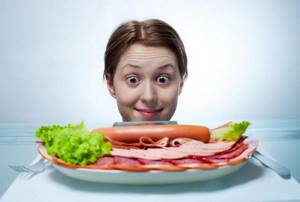
Insulin, in turn, signals the body and the part of the brain called the pituitary gland that it is possible to relax and not produce growth hormone at night and not use its own, and so laboriously accumulated, fat reserves. At the same time, the excess weight that you gain is the least of the problems, since growth hormone has many vital functions in the body, including promoting the growth of muscle tissue.
In addition, after eating, on the contrary, the level of other active hormones will increase, including the stress hormone cortisol and the sex hormone, and all this together, and even in the absence of growth hormone in your body at night, will lead to accelerated aging.
Illness from eating at night
And scientists insist that even the very fact of the presence of high levels of insulin in the blood is the main cause of both physical diseases. For example: atherosclerosis, diabetes, obesity, osteochondrosis, hypertension with its strokes and heart attacks, osteoporosis, dysbiosis and many others.

And psychologically it’s no better; frequent depression, psychosis and nervous breakdowns are often aggravated by excess insulin in the body. Not to mention greater exposure to harmful habits, such as drinking, smoking and even gluttony and drug addiction are included in this not very honorable list.
Therefore, if you often suffer from the manifestations of the listed diseases or somehow unexpectedly you like to be visited by depression, apathy, irritation, etc.
Here's a simple test for you, just try to remember whether you still indulge yourself with food at night, instead of proper sleep and rest. And if that’s not enough for you, then we have more)).
Vascular problems
There is another reason why eating at night is harmful. Excess glucose destroys collagen. This protein regulates the elasticity and strength of blood vessels. Late meals lead to the fact that the blood vessels wear out ahead of time, as a result of which all kinds of diseases develop.

Each person decides for himself what time to have dinner, but the rule must be followed: the last meal should be taken 3-4 hours before bedtime. The fact is that growth hormone is better produced on an empty stomach, which helps increase muscle mass.
Poor digestion of food
Another reason why it is harmful to eat at night is that the duodenum is in a state of “rest” and does not work at full capacity. Filled with food, it stretches. Gastric juice cannot enter this mass, so food is stored in the intestines until morning.

Bile is formed in the gallbladder. It cannot break through the resulting seal, so it becomes thick. As a result, inflammation and stones form, which can only be removed through surgery.
Sleep disorders
It has been scientifically proven that late meals lead to insomnia and other sleep disorders. The hormone melatonin promotes sleep, but it is not produced on a full stomach, which is why it is so difficult to fall asleep after late-night snacks. In addition, if you regularly eat at night, you can disrupt biological rhythms.

There will be a feeling of discomfort in the mouth and heaviness in the stomach.
The appearance will also deteriorate: bruises will appear under the eyes, the eyelids will swell.
However, you need to understand that fasting before bed is contraindicated for young children and patients suffering from ulcers.
What fruits should you not eat at night?
Fruits contain many complex carbohydrates that are difficult for the liver to process. Their use is allowed only during intense physical activity or during the day. It is better not to eat fruit at night.

If you really want to, then a maximum of an hour before rest. Sour and sweet fruits provoke a high level of gastric juice secretion, and this will provoke severe hunger. As a result, it will be difficult to restrain yourself from eating something substantial.
Peanut butter
Almond butter, peanut butter, or any other nut butter that becomes your favorite bedtime snack may well contribute to weight gain. Yes, there are studies showing that peanut butter promotes weight loss, but many more researchers believe that it and other nut butters may be responsible for weight gain. When I suffered from bulimia, I ate nut butter almost every evening, only coming to my senses when I gained five kilograms. I must tell you, it was not only a bad habit, but also a shameful one. So if you're craving a snack before bed, put the nut butters aside and drink a big glass of unsweetened almond milk. Almond milk is rich in calcium, makes you feel full, calms your nerves and promotes healthy sleep. You can sweeten it slightly with stevia or cinnamon for the perfect bedtime snack! No, if you still want to eat peanut butter, you can, but exercise moderation and try not to make it a habit.
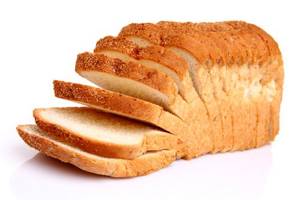
What vegetables are not recommended to be eaten at night?
Tomatoes are a very healthy vegetable. Eat them 2 hours before bed in small quantities, or better yet, make a salad with cucumbers, seasoned with olive oil.

Tomatoes, having a low glycemic index, are digested very slowly, which is dangerous for ulcers and high acidity of the stomach. The most unpleasant thing is that they cause heartburn.
But cucumbers will not do any harm.
What can you eat at night without harm?
If you really want, you can allow yourself to eat a small handful of walnuts, a pear, half an apple without peel, persimmon, avocado, a piece of melon, a little cabbage, tomato, greens in any combination and quantity, low-fat yogurt. A suitable dish would be an omelet (but not scrambled eggs) made from whites with broccoli. A snack with more calories will be boiled potatoes, beets, carrots, banana.
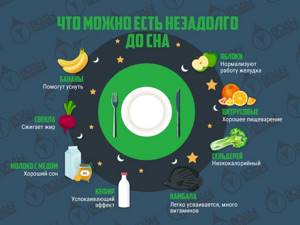
If the stomach is healthy, the list includes legumes, mushrooms, and apples. You can eat berries without restrictions, fiber and low-fat kefir in small quantities.
The benefits of kefir before bed, as well as throughout the day, are undeniable. It has few calories, but is quite nutritious. If a person is trying to lose extra pounds, then kefir should be chosen with a low fat content.
This drink contains no fat or carbohydrates, but does contain proteins. They guarantee good digestibility of kefir. Drinking a glass before bed can curb your hunger without any harmful consequences.
Lactic acid bacteria normalize intestinal microflora. This kefir can be given five points. If you drink this milk drink daily, you can quickly improve your intestinal function, which helps you lose weight.
You can drink kefir in the morning, during the day, and at night. While a person is sleeping, the product will have time to be completely digested. Nutritionists offer many kefir diets.
The drink should not be drunk cold or hot. It should be warm. Remove the pack from the refrigerator in advance so that the drink has time to warm up to room temperature.
Some people prefer a sweet product, then you can add a little sugar or jam. You need to drink in small sips, slowly. Most importantly, kefir must be fresh.
Ice cream
I am more than sure that most of my readers love ice cream. Yes, I adore him myself. However, unfortunately, ice cream, like medals, has two sides. Ice cream perfectly calms us down and can quickly cheer us up even on the darkest day, but if it occurs to you to eat ice cream before bed, you should know that the thought that came into your head is clearly not the best. Eating ice cream before bed is a bad idea even if you want to gain weight. Any ice cream is chock-full of fats, which, like all fats, are digested rather slowly, and there is also a lot of sugar, which, as you already know, causes nightmares and can keep you up all night. Yes, the taste of ice cream is simply super, but the consequences of eating it at night are absolutely terrible. If you want something milky for the night, forget about ice cream. Instead, drink a glass of regular unsweetened milk. Yes, it is not nearly as tasty as ice cream, but it is much healthier and healthier.
